On July 29, the House Judiciary Antitrust Subcommittee will hold a hearing with some of the nation’s top technology CEOs. Facebook’s Mark Zuckerberg, Amazon’s Jeff Bezos, Google’s Sundar Pichai, and Apple’s Tim Cook are all testifying (remotely), with the hearing focused on the anti-competitive behavior of their respective firms. The House Judiciary Committee started this investigation over a year ago and has collected over 1.3 million documents about these business practices, so there is some reason to be believe that this meeting will be more substantive and nuanced than some prior technology sector hearings.
On the other hand, Representative Matt Gaetz (R-FL) just asked the Department of Justice for a criminal investigation into Mark Zuckerberg based on a report from the chronically misleading Project Veritas. So, there is also some reason to believe it will be a circus.
The antitrust considerations are important (there are many specific issues with each company) and will hopefully be seriously engaged. Yet it would be a mistake to look at this hearing and see only a conversation around the size of some technology companies. Democratic governance of technology touches on broad foundational questions of our economic future. These questions will go far beyond what we now consider the tech sector and may define how we work and even what we know.
Challenges to the digital knowledge economy
It is difficult to overstate the importance of the digital knowledge economy. Many internet users observed the early chaotic evolution of the internet, but that disorder is increasingly less prevalent today. More and more, a small number of companies are creating rules and systems that define the structure of the web—rules that new generations of internet users will inherit as the status quo. While Google has long shaped the web due to the importance of its search results, it now directly subsumes other websites into its service.
On July 27, The Markup reported that 41% of Google’s first page search results are composed of more Google services. This includes “direct answers”, which displays content from other webpages without their consent. Sundar Pichai may hear about this as an antitrust issue. For instance, it may not be to our benefit that Google Translate and not other cross-language dictionaries will always have the final word.
However, incisive observers should broaden their perspective and consider how a healthy internet should enable the discovery and distribution of knowledge. Despite its benefits, social media continues to enable large swaths of the country to disseminate dangerous pseudoscience and misinformation. On July 27, New York Times reporter Kevin Roose tweeted that a video claiming that masks aren’t necessary and hydroxychloroquine is a cure for COVID (both false and dangerous claims) garnered tens of millions of views, mostly on Facebook. This is with Facebook explicitly promising to fight COVID-19 misinformation, a step they do not take for most of the false information on their site. More systemically, look no further than how Facebook elevates the hyper partisan conservative site, The Daily Wire. Meanwhile, these companies are siphoning revenue and autonomy (see Google AMP, for instance) from objective journalism. It poses a problem that tech companies are undermining the stability of objective journalism while also being uninterested in the responsibility of content moderation. As more of that public discourse, from TikTok to academic journals, becomes internet native, do not expect this already-pressing question to go away.
Troubling new models of the workplace
These companies are also pioneering models of hybrid human and algorithmic workplaces— models that may find their way to industries far beyond what we consider tech. Amazon is automating significant parts of its interaction with employees, tracking efficiency and automatically generating warnings and possibly terminations (Amazon has disputed the latter) for workers who aren’t keeping up. This ‘management by algorithm’ is also well-established through companies like Uber and Lyft. Despite lack of profitability, these companies still inspire so many imitators that “Uber for _____” is a trope of venture capitalist culture. Alternatively, Facebook is working to integrate AI systems and employees to work side-by-side, such as with content moderation on their platforms. Automated systems seek to detect and remove pornography and hate speech, and when those systems struggle, they pass the task off to human moderators.
One commonality is that these practices tend to create two tiers of employees: the highly paid jobs in the technology company, and the far less appealing roles working as an algorithmically managed contractor. Research has shown that almost all jobs across economic sectors are subject to some degree of automation, and so these models of workplace integration may be harbingers of far broader trends.
No market will be left untouched by tech
Much of the hearing will be focused on anti-competitive behavior in the markets that these four tech behemoths directly engage, such as retail, app stores, and advertising. For instance, representatives will likely ask if Apple is overcharging for hosting phone applications in its App Store, and whether all of the companies are using their data to acquire competing services before they are too big. Yet, the implications again go much further, as there are no markets untouched by technology. Even restaurants, quintessentially local businesses, need to actively manage a relationship with Google Maps, Yelp, TripAdvisor, Facebook, and others just to survive. Further, Grubhub and DoorDash have been known to subsume restaurants into their services, sometimes without the eatery’s knowledge or consent. If restaurants are functionally coerced into engaging with a series of online services just to serve food in person, is any industry going to be untouched?
This hearing could be the start of a broader reform of the tech industry, perhaps ranking among major regulatory milestone like the creation of the Consumer Financial Protection Board in 2010 or the passage of the Food and Drugs Act and Meat Inspection Act in 1906. While this might lead to enormously important legislation for technology companies, the stakes are even far greater than that. Little of our society will remain untouched by the rules we decide on for technology and the web.
Amazon, Apple, Facebook, and Google are general, unrestricted donors to the Brookings Institution. The findings, interpretations, and conclusions posted in this piece are solely those of the author and not influenced by any donation.
The Brookings Institution is committed to quality, independence, and impact.
We are supported by a diverse array of funders. In line with our values and policies, each Brookings publication represents the sole views of its author(s).

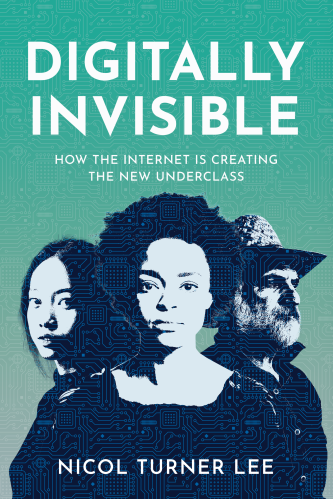
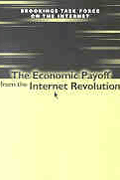
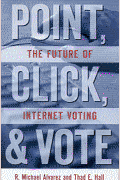
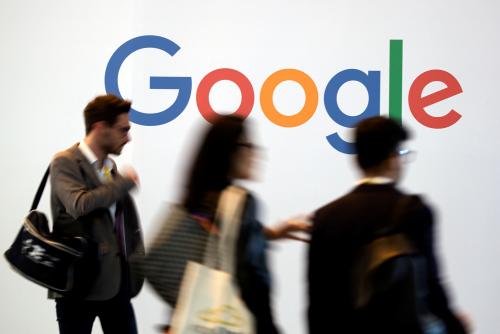
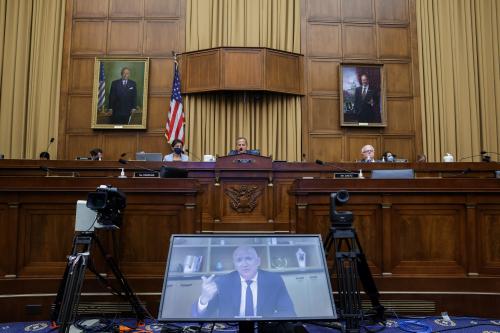

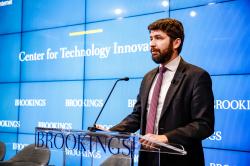



Commentary
In Congress’s big tech hearing, look beyond ‘technology policy’
July 29, 2020